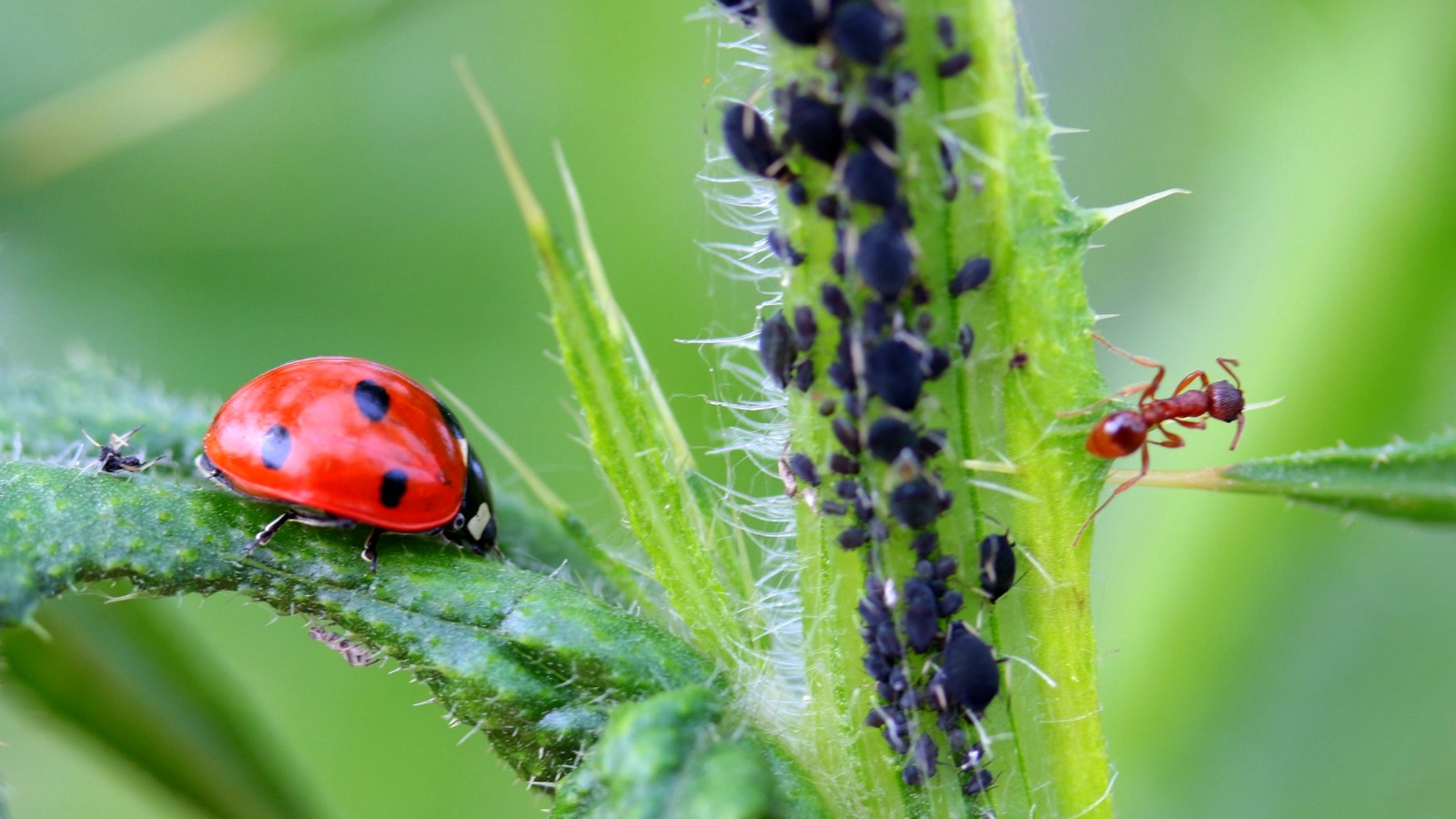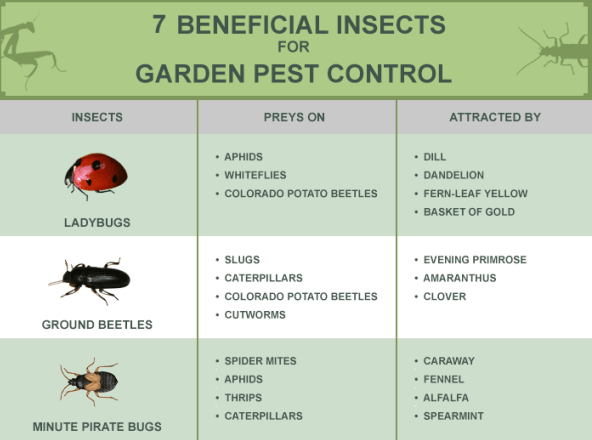
We all know the importance of having pollinators in our gardens. However, the beneficial insects we are talking about here are not the pollinators. For pest control, we are interested in insects that feed on the pest insects as a means of natural pest control. For instance, damsel bugs, ladybugs, parasitic wasps, minute pirate bugs, lacewings, and many other insects can help out a lot in dealing with insect pests. They either eat the pest insects or use the pest insects as housing and food for their young ones.
To attract the beneficial, you need to provide an environment with an ample supply of carbohydrates in the form of nectar and a steady supply of protein-rich pest insect to consume. Of the two sources of nutrients, you have greater control over the supply of nectar. As such, you need to have a combination of plants that provides the necessary carbohydrate-rich nectar.
Keep in mind, the more beneficial insects you have in your garden, the less likely you will have a pest outbreak.
Choose Pest And Disease-Resistant Crops And Crop Varieties
Having beneficial insects in your garden, for instance, ladybugs is an excellent way of preventing an explosion of garden pest’s population in your garden.
However, you can deal with a considerable portion of the pest headache by choosing pest-resistant plant varieties. Doing this will reduce the extent of pest-infestation you suffer. For example, if your squash plants suffer a massive squash bug infestation during winter months, go for Royal Acorn and Butternut as they are more pest-resistant. In the same regard, if you have a problem dealing with Colorado potato beetles defoliating your potatoes, try out the ‘King Harry’ potato variety. This potato variety has hairy leaves that beetles cannot eat.
Use Physical Barriers To Prevent Pests From Attacking Your Plants
Employing physical barriers is one of the best ways of preventing pests from reaching your crops in your garden. For instance, consider covering the most susceptible crops in your garden with floating row covers. These are a lightweight spun-bound fabric designed to lightly rest on top of wire hoops or the actual plants.
When using this form of physical barriers, you should make sure there is plenty of slack in the cover. Also, pin the sides of the cover to negate the chances of pest crawling under the cover and up to the plants.
Over the years, I have found the floating row cover to be effective at keeping cabbageworm caterpillars and Japanese beetles away from my kales, broccoli, and cabbage. Gardeners Path has the full info. The covers are also useful in protecting young cucumber plants from Mexican bean beetles and young squash plants from squash beetles. Remember to remove the cover when the flowering time comes to give pollinators access to the plant.
Implement Intercropping
Increasing diversity in your garden can reduce pest in your garden. Consider intercropping different vegetables. Additionally, intercrop the vegetables with flowering herbs and annuals. This will make it difficult for pest to locate their ideal foods.
You can take intercropping to the next level by planting a variety of vegetables in the rows instead of planting a single crop in one row or block. This will keep the deter monoculture completely. While there is still a lot left to lean about intercropping and a lot of research is underway, it appears that it does reduce pest infestation. Consider this, for the pest to find their food, they have to scour for food amid different plants. This environment will make it challenging for pests to find and hone in on their food. In the long run, they cannot find the energy needed to survive and reproduce, thereby reducing their numbers.
Dill is a great plant to intercrop with your vegetable and other crops. It has small flowers, and it is fragrant. As such, it can attract beneficial insects while making it hard for the pest to locate their food.
Cultivate Healthy Plants
Growing healthy plants seem like a no-brainer for many horticulturalists. However, it is an essential part of preventing pests from infesting our gardens not to mention. Although it might seem like it, plants have an immune system, although one that is different from what you and I have. When plants are healthy and do not exhibit signs of stress, they are less attractive to pests.
Additionally, healthy plants are better capable of deterring pests through chemical defenses. In a nutshell, the healthier a plant is, the more defensive it is and the better it is capable of deterring pests independently.
To ensure your plants stay healthy, feed your soil organic matter. Plant your crops in an environment where they can thrive – ample sun for sun plants and plenty of shade for shade plants.
Keeping your plant healthy is a golden trick as far as deterring pests is concerned.

